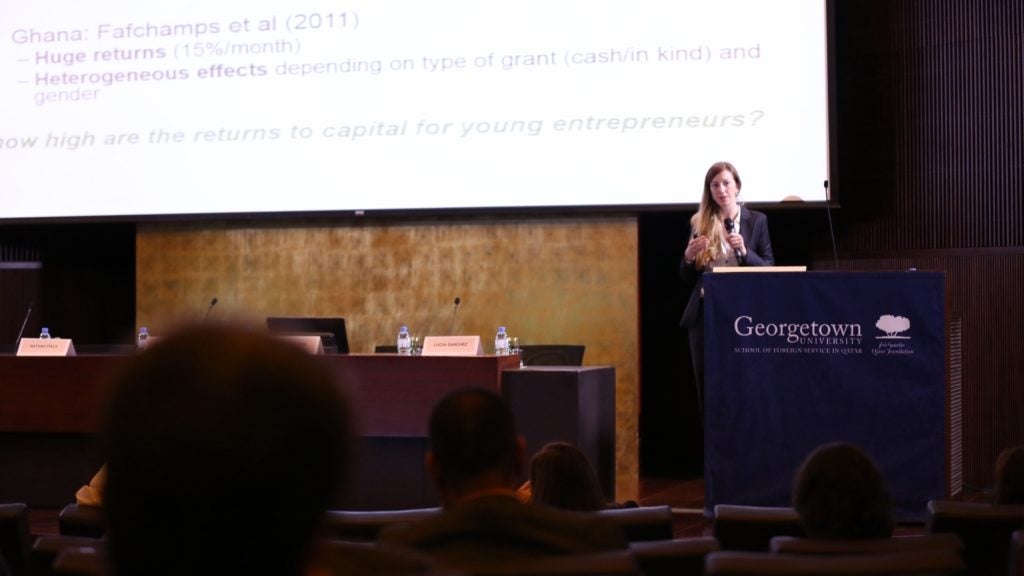Arab Youth Employment: Knowing what Works and what Doesn’t

The hot-button topics of Arab youth and job creation in the Arab World will be tackled by policy makers, practitioners, academics, and researchers, at a Georgetown University in Qatar (GU-Q) hosted symposium, where participants will present and discuss the evidence base for “what works” in increasing the employment and productivity of youth in the region.
From March 6-8, discussants will share recent findings of impact evaluations from the Middle East and other developing regions, and introduce impact evaluation findings that are vital tools for developing evidence-based policy creation. The Evidence Symposium on “What Works” to improve youth labour productivity will also offer teachings on impact evaluation methods and “rules of operation” to promote this vital instrument in policy development.
The Symposium at GU-Q is organized by the International Labour Organization in partnership with Silatech, Abdul Latif Jameel Poverty Action Lab and the Arab Urban Development Institute.
John T. Crist, Director of Research at GU-Q, said “A tremendous strain has been placed on labor markets both here in the Arab World, and worldwide, through a persistent pattern of unemployment, underemployment, and vulnerable employment. By hosting this symposium, we hope to contribute to the dialogue on how to improve this situation, and to provide the tools that will assist the policy makers, governments, and various institutions who are struggling with these issues.”
Dr. Ganesh Seshan, an Assistant Professor at GU-Q who specializes in Economics, stressed the importance of including an impact evaluation element to the labor-focused symposium saying “For both public and private sector programs that seek to address the labor challenges in the region, a clear picture of what works, and what doesn’t, is really a key step in designing effective policies. So at this symposium, we will also be providing basic training to the participants in evaluating the efficacy and impact of both current, and future programs.”
Another goal of the event is to catalyse new partnerships amongst donors, implementers, and researchers with the goal of advancing shared knowledge of what works, and what does not, in promoting employment and entrepreneurship for disadvantaged young people. Susana Puerto, Senior Youth Employment Specialist at the ILO explained that one of the goals of the conference was “to build a critical mass of evaluation expertise in the region so that the black box of program implementation can be opened and shared with policy makers”.
Participants include policy makers, including senior government officials from Labour and Youth Ministries, international institutions and other development institutions, organizations providing job market services such as counseling, placement assistance, and training, and researchers who study youth employment and entrepreneurship. As part of the conference, a panel discussion titled “Evidence, Innovation & Experimentation: Stimulating Employability and Entrepreneurship in the MENA Region” will be open for public attendance on March 9, 2014, at 6:00 pm. The discussion of how the entrepreneurial sector can contribute to the development of the Arab labor market and the role Qatar is playing in addressing this critical issue will feature Dr. Tarik M. Yousef CEO of Qatar-based NGO Silatech, Raj Desai, Associate Professor of International Development at Georgetown University, Washington D.C., and Bruno Crépon, Professor of Economics at ENSAE and École Polytechnique, France.
For further information or questions, please contact yenetwork@ilo.org